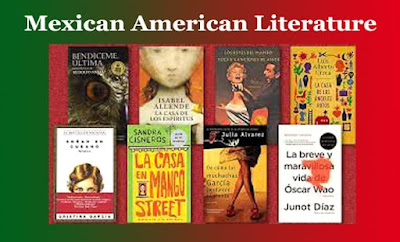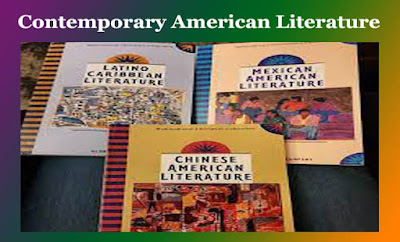Themes in American Literature
Themes in American Literature
Themes in American Literature
Introduction to Themes in American Literature
American literature encompasses a wide array of themes that reflect the diverse experiences, values, and challenges in the United States. These themes often evolve over time, reflecting the changing social, cultural, and political landscapes. Here are some enduring themes in American literature.
Key Themes in American Literature
The American Dream: The pursuit of success, prosperity, and upward mobility is a recurring theme in American literature. It explores the promises and challenges of achieving the American Dream.
Examples: F. Scott Fitzgerald's "The Great Gatsby" and Arthur Miller's "Death of a Salesman" critically examine the complexities and disillusionment associated with the American Dream.
Individualism: Individualism, the belief in personal freedom, self-reliance, and the pursuit of one's own goals, is a foundational theme in American literature.
Examples: Ralph Waldo Emerson's essay "Self-Reliance" and Mark Twain's "Adventures of Huckleberry Finn" emphasize the value of individual autonomy.
Nature and the Frontier: The American landscape, wilderness, and the frontier have been integral to the nation's literary imagination, symbolizing both opportunity and challenges.
Examples: Henry David Thoreau's "Walden" and the poetry of Walt Whitman celebrate the transcendental connection between individuals and nature.
Identity and Diversity: Exploring identity, whether based on race, ethnicity, gender, or social class, is a prevalent theme in American literature, reflecting the nation's diverse population.
Examples: Toni Morrison's "Beloved" addresses African American identity post-slavery, while Amy Tan's "The Joy Luck Club" explores the complexities of Chinese American identity.
Social Injustice and Civil Rights: American literature often engages with social issues, including racial injustice, inequality, and the quest for civil rights.
Examples: Harper Lee's "To Kill a Mockingbird" confronts racial injustice, and Martin Luther King Jr.'s "Letter from Birmingham Jail" is a powerful nonfiction work advocating for civil rights.
The Search for Meaning: Writers in American literature often grapple with existential questions about the meaning of life, morality, and the human experience.
Examples: J.D. Salinger's "The Catcher in the Rye" and Jack Kerouac's "On the Road" explore the search for meaning and purpose.
The Frontier Mentality: Rooted in the history of westward expansion, the frontier mentality embodies themes of exploration, expansion, and the encounter with the unknown.
Examples: James Fenimore Cooper's "The Last of the Mohicans" and Cormac McCarthy's "Blood Meridian" depict the challenges and violence associated with the frontier.
Technology and Modernity: With the rise of industrialization and technological advancements, American literature explores the impact of modernity on individuals and society.
Examples: Kurt Vonnegut's "Player Piano" critiques a society dominated by technology, and Don DeLillo's "White Noise" examines the influence of media and consumer culture.
War and its Aftermath: American literature often addresses the consequences of war, exploring themes of trauma, loss, and the impact of conflict on individuals and society.
Examples: Tim O'Brien's "The Things They Carried" reflects on the Vietnam War experience, and Ernest Hemingway's "A Farewell to Arms" explores the aftermath of World War I.
Coming-of-Age: The theme of coming-of-age is a recurrent motif in American literature, depicting the growth, maturation, and self-discovery of protagonists.
Examples: J.D. Salinger's "The Catcher in the Rye" and Sandra Cisneros's "The House on Mango Street" both explore the challenges and revelations of adolescence.
Conclusion:
These themes, woven into the fabric of American literature, contribute to the depth and complexity of the nation's literary tradition, providing insight into the cultural, social, and philosophical dimensions of American life. 0 0 0. Themes in American Literature
Critical Essays on American Literature:
- Father of American Literature
- African American Literature Books
- Realism in American Literature
- Early American Literature
- American Literature - An Overview
- How Are American Literature and American Identity Interrelated
- What Impact Did Poe Have on American Literature
- American Literature Syllabi
- 19th Century American Literature
- Best American Literature
- Great American Literature
- American Literature Timeline
- American Literature Periods
- American Literature Class
- Health Anthology of American Literature
- American Literature Textbooks
- Romanticism in American Literature
- How Did Archetype of Devil Symbolize American Literature
- Latin American Literature
- Apologia American Literature
- Is American Literature Hard
- Classic African American Literature
- American Literature Antholotges
- Survey of American Literature
- 20th Century American Literature
- American Literature Reading List
- My Perspectives of American Literature
- Modernism First Developed in American Literature
- American Literature Syllabus
- American Literature Books for High School
- American Literature Example
- American Literature Journal
- American Literature
- British English and American English Which is Easier
- A Brief History of American English
- Difference Between British English and American English
- History of American Literature
- Contemporary American Literature
- American Literature Movements
- Mexican American Literature
- Famous American Literature
- American Association Conference 2017
- Naturalism in American Literature
- American Literature Short Stories
- What Makes American Literature American..










Comments
Post a Comment